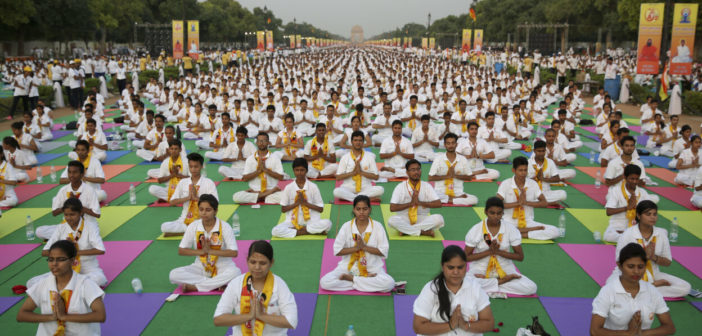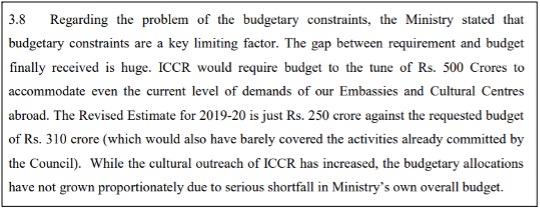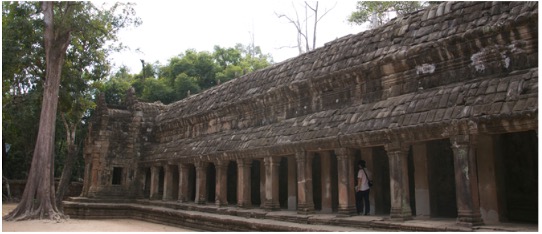Apart from economic and military power, the concept of soft power has gained traction in the last few decades globally. The Parliamentary standing committee on External Affairs has not noted that despite India having such a wide array of resources of soft power, MEA has not been able to project them efficiently to achieve the foreign policy goals. Here is a review of its recommendations.
Apart from economic and military power, the concept of soft power has gained traction in the last few decades globally. Indian culture, yoga, spiritualism, festivals, music, dance & arts, food, etc. have been attracting people from across the world for centuries. ‘The Parliamentary Standing Committee on External Affairs’ tabled its 16th report, titled ‘India’s Soft Power and Cultural Diplomacy: Prospects & Limitations’ in the Parliament during the winter session of 2022. In the report, the committee made a slew of recommendations on how India can better project this soft power in conjunction with the conventional & cultural diplomacy.
India has a wide array of resources of soft power
Soft power is the ability to influence others through appeal and attraction, using non-coercive means, according to the Ministry of External Affairs (MEA). Use of soft power and cultural diplomacy constitutes an integral part of MEA’s overall strategy for achieving the key objectives of Government’s foreign policy and thus play an integral part of MEA’s overall strategy. India’s vast repertoire of soft power resources include its cultural heritage evident in arts, dances, literature, cuisine, yoga, traditional medicine, cinema and entertainment, sports, historical monuments, India’s democratic traditions, constitution, unity in diversity and contributions in resolving contemporary environmental issues, scientific/technological accomplishments, and socio-economic innovations.
As per the report, despite India having such a wide array of resources of soft power, MEA has not been able to project them efficiently to achieve the foreign policy goals mainly because of four reasons; inadequate budgetary allocation, lack of coordination among multiple institutions, shortage of skilled manpower, and absence of national policy. The panel recommended that MEA must assess India’s soft power potential and come up with strategies to utilize them. Further, a policy document on India’s soft power projections was also recommended. The committee called for constituting a coordination committee consisting of representatives from the ministries of external affairs, culture, youth and sports affairs, AYUSH and science and technology to overcome the lack of coordination among multiple institutions in projecting India’s soft power.
Namaste became a popular form of greeting during COVID-19
During the pandemic, India’s traditional greeting form of ‘Namaste’ had acquired greater recognition as a global form of greeting as it required no contact between people. It noted that MEA and the Ministry of Culture embraced digital and virtual mode to carry forward India’s soft power and cultural diplomacy during the pandemic and asked the Ministry to adopt innovative ICT technologies to make India’s soft power and cultural diplomacy more effective and relevant in the post-covid world.
Best international practices on leveraging soft power instruments should be studied
MEA was also recommended to study international best practices on how countries are leveraging their soft power instruments. It noted that the soft power organization of China, UK, Japan, USA, Russia, and France focused on language promotion, leadership programme, cultural activities, and promotion of art forms. Indian Council for Culture Relations (ICCR) does most of these activities in India.
The committee observed that there is an urgent need for a complete overhaul of the structure, mandate and functioning of the ICCR so that it can project Indian culture in a comprehensive, cohesive, transparent, and inclusive manner. ICCR was asked to adopt a suitable motto and have a well-defined vision and mission statement.
India’s spending on soft power promotion is low compared to China, UK, and Germany
The amount spent by China on its Confucius Institutes and soft power promotion is estimated to be about Rs. 10,000 crores a year whereas ICCR and other agencies put together spend around Rs. 300-400 crores. Most of India’s expenditure goes into establishment and administration. In 2021-22, the British Council received 179 million pounds as grant-in-aid. Including this, their total income was 1034.5 million pounds. Goethe Institute’s budget was also about 370 million Euros. Noting this, the committee suggested an increase in ICCR’s budgetary allocation by at least 20% for better outcomes. Enhanced annual budgetary allocation of Rs. 500 crores for ICCR to conduct India’s soft power and cultural diplomacy was also recommended.
ICCR should explore financial models
The committee opined that ICCR has scope for improvement and expansion of the activities and suggested including language promotion and art forms in its activities. ICCR was asked to explore other financial models like public private partnership to supplement the grants-in-aid received from MEA. Improved human resource policy, appointment of genuinely interested persons, mechanism to share human resources to the fullest in cultural centres was also recommended.
India has tremendous scope to leverage the democratic credential as soft power tool
India is the world’s largest democracy. The country’s parliamentary democracy with a multi-party-political system and orderly change of government through periodic peaceful elections has global appeal. Promotion of democracy as India’s strength is being undertaken by MEA along with Parliament Secretariat and Election Commission. ICCR’s ‘Next Generation Democracy Network Programme’ helps young leaders witness India’s democratic system. The committee observed that India has tremendous scope to leverage the democratic credential as a soft power tool.
Separate division is being established for reviving monuments with Indian influence abroad
The Archaeological Survey of India (ASI) and MEA have restored historical monuments with Indian influence in other Asian countries including Laos, Cambodia, Afghanistan, among others. A new and separate division to handle projects abroad is being established by MEA with ASI and Ministry of Culture. This move was appreciated by the committee and asked the ministry to inform the progress of the same.
Tourism sector should be boosted as it is an important indicator of soft power
India’s rich culture and heritage make it one of the most interesting destinations in the world to visit and tourism is an indicator of a country’s soft power. Initiatives such as the ‘Incredible India’ campaign, participation in tourism fairs/exhibitions/expos/road shows, signing of Agreements/MoUs with countries, identifying wellness and medical tourism areas, etc. are being rolled out by India to boost tourism. The tourism sector was one of the severely hit by the pandemic. The committee suggested that the government adopt country-specific approach for promotional activities and come up with proposals incorporating feedback from all types of travellers for the same.
The entry fee to historical monuments is different for Indian and foreign travellers. Though it is a major source of revenue, the different pricing is unnecessary in the globalized world. The committee recommended revisiting the pricing system while suggesting common tourist passes for entry to different heritage sites like in European countries. Infrastructure and public transportation should also be ensured in tourist areas. A multi-pronged approach to capitalize on India’s potential as a hub for religious and medical tourism by building requisite infrastructure and skilled expertise was recommended.
Promotion of AYUSH & Yoga abroad has been recommended to boost India’s exports
The committee recommended that MEA should facilitate the opening of more AYUSH centres overseas in a strategic and planned manner. Further, it noted that India exports AYUSH and herbal products to about 100 countries and that a majority of these exports are value-added extracts of medicinal plants, dietary supplements, and nutraceuticals, and recommended the government make concerted efforts to get recognition of Ayurveda as a system of medicine and adopting pharmacopeia of India so that they can be exported as medicine.
Concerted effort is being made by the government to popularize yoga through promoting International Yoga Day and setting up of facilities such as the Indo-Turkmenistan Centre for Yoga and Traditional Medicine in Ashgabat and India-China Yoga College at China’s Yunnan Minzu University, etc. The panel suggested setting up a ‘Yoga Certification Board’ for certifying Indian yogic practices and therapies. The committee recommended involvement of Indian diaspora in not only popularizing Yoga but also for boosting India’s cultural diplomacy.
Measures recommended for media and cinema as tools of soft power
The popularization of Indian personalities and historical events on a regular basis with the active involvement of Indian Missions/Posts abroad, revamping the focus, structure and functioning of Doordarshan India for its global outreach, and popularizing Indian movies and regional cinema abroad were some other recommendations put forth by the committee.






